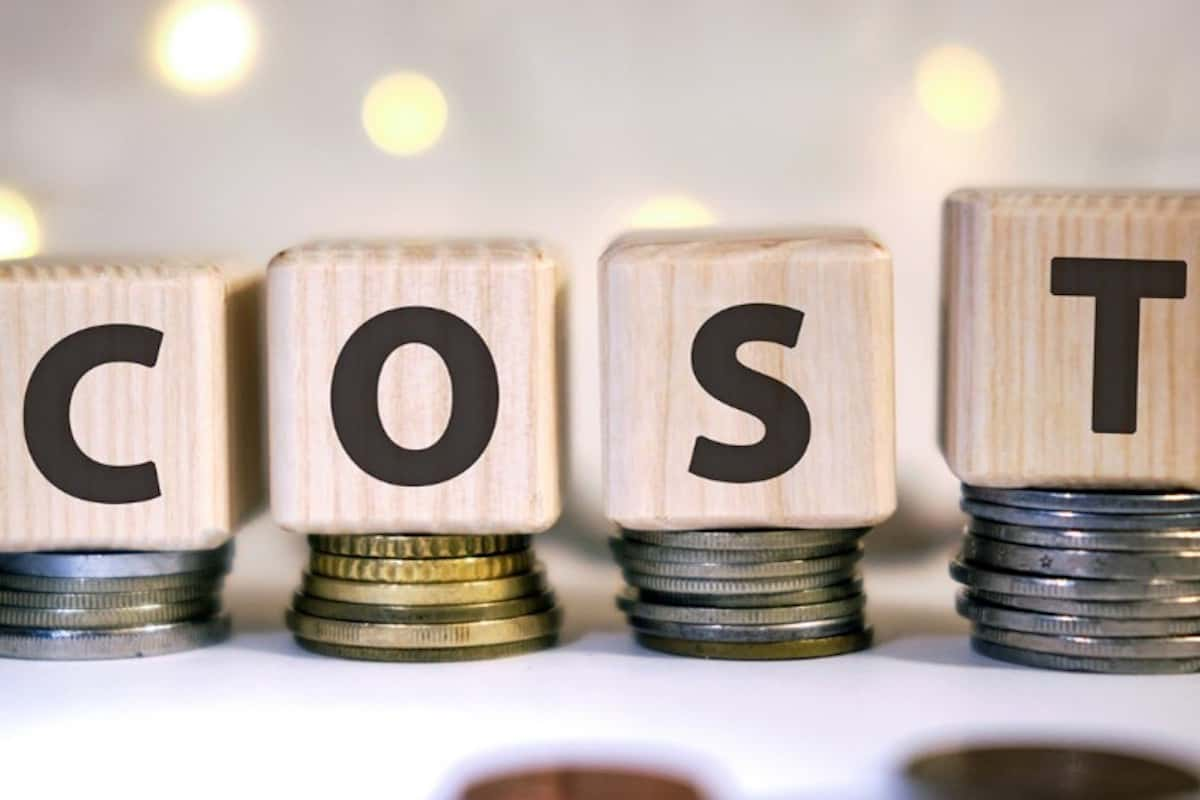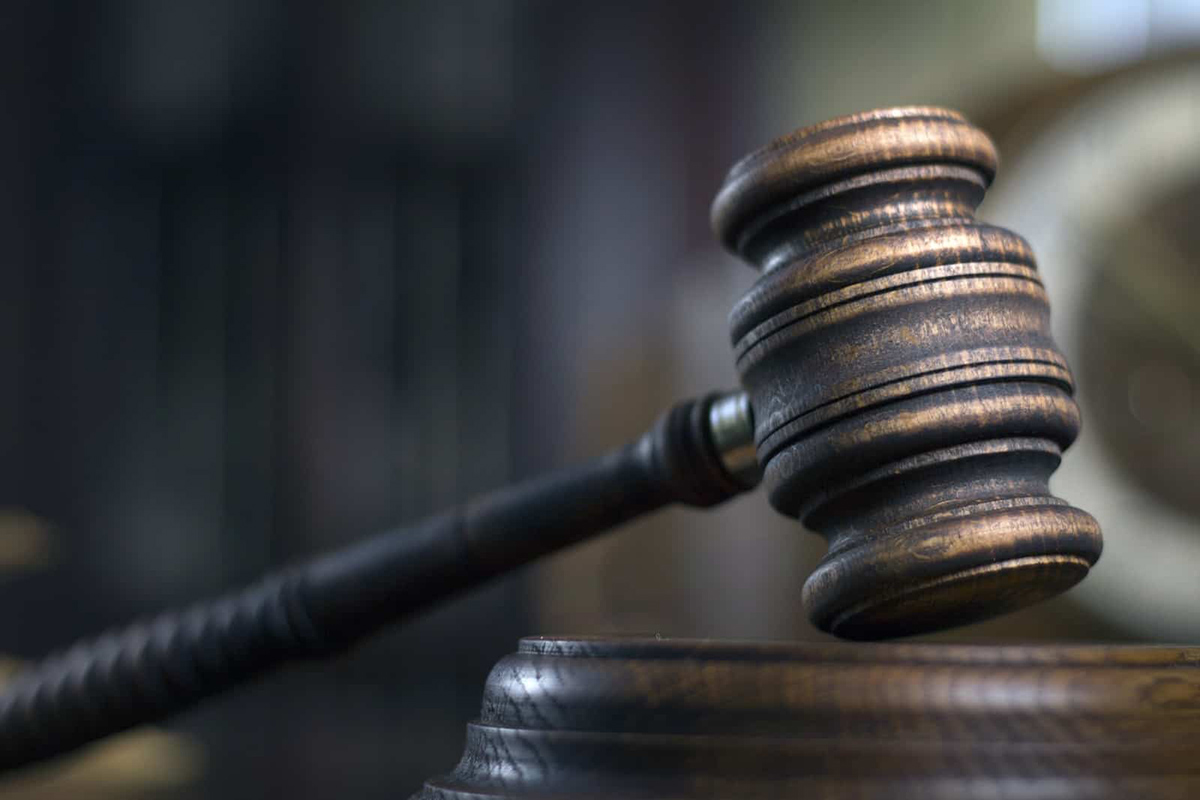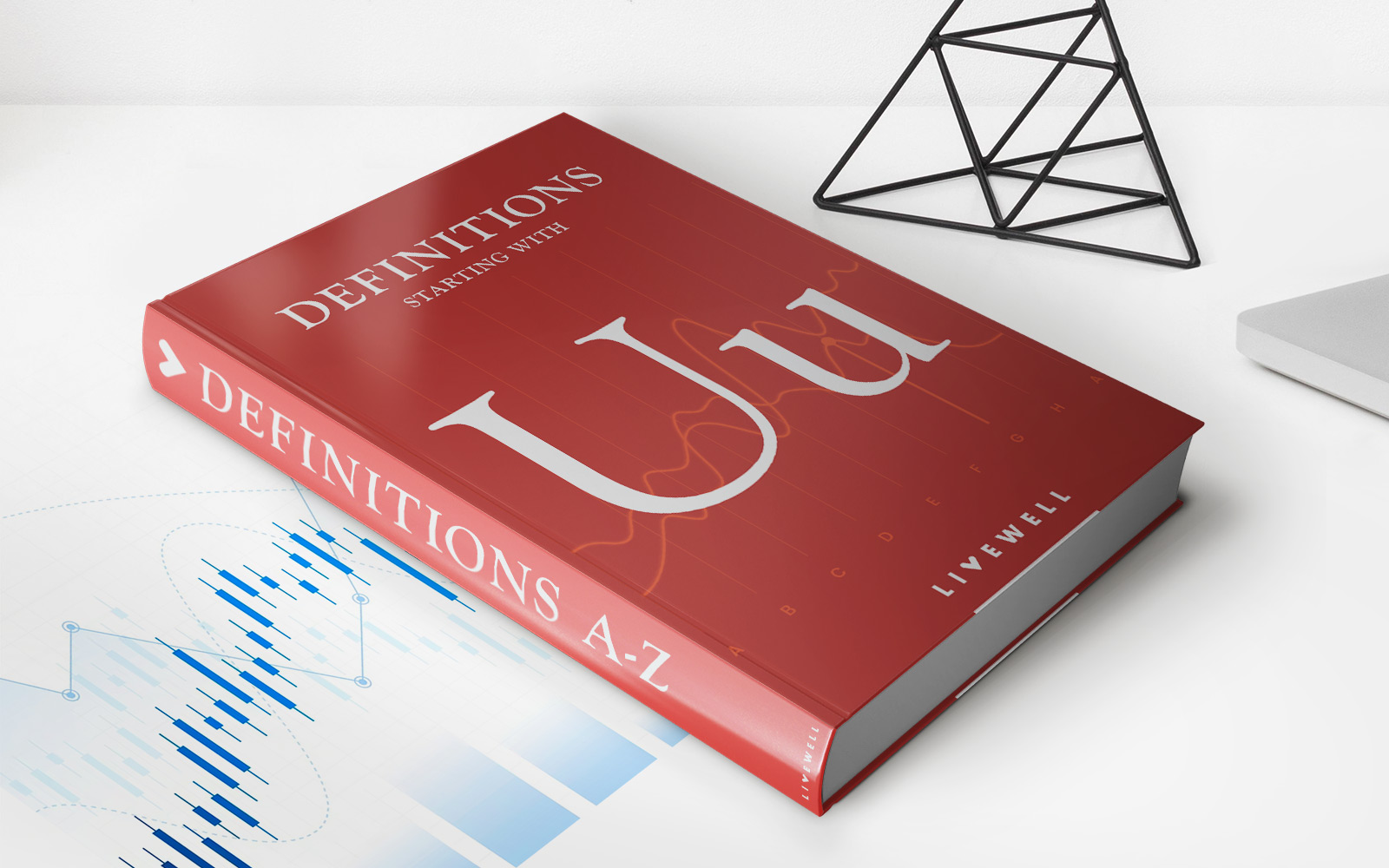

Finance
How Much Does An Estate Planning Lawyer Cost
Published: January 3, 2024
Find out the cost of hiring an estate planning lawyer for your financial needs. Expert guidance and affordable rates to secure your future.
(Many of the links in this article redirect to a specific reviewed product. Your purchase of these products through affiliate links helps to generate commission for LiveWell, at no extra cost. Learn more)
Table of Contents
Introduction
Welcome to the world of estate planning! Whether you are just starting to think about your future or have already accumulated significant assets, having a solid estate plan in place is crucial. An estate plan not only ensures that your assets are distributed according to your wishes but also provides protection and peace of mind for your loved ones.
However, many people may be hesitant to approach estate planning due to concerns about the cost involved. It’s important to understand that estate planning is an investment in the future, and the cost of hiring an estate planning lawyer can vary based on several factors.
In this article, we will explore the various factors that determine the cost of hiring an estate planning lawyer. We’ll discuss the different fee structures and additional costs that may arise during the estate planning process. We’ll also touch on the possibility of DIY estate planning and the potential drawbacks of not seeking professional legal advice.
So, let’s dive in and unravel the mysteries of estate planning costs, enabling you to make an informed decision about how to protect your assets and secure your legacy.
Factors That Determine the Cost
When determining the cost of hiring an estate planning lawyer, there are several factors that come into play. Understanding these factors will help you gain clarity on what to expect in terms of fees. Here are some key factors that influence the cost of estate planning:
- Complexity of Your Estate: The complexity of your estate is a significant factor that affects the cost of hiring an estate planning lawyer. If you have multiple properties, diverse investments, or complex family dynamics, it may require more time and expertise to create a comprehensive estate plan. This complexity often leads to higher fees.
- Type of Estate Plan: The type of estate plan you need will also impact the cost. A basic estate plan may include a will and power of attorney, while a more comprehensive plan might involve trusts and other specialized documents. The more complex the plan, the more time and effort the lawyer will need to invest, resulting in higher fees.
- Experience and Reputation of the Lawyer: The experience and reputation of the estate planning lawyer can have a direct impact on the cost. Established and highly experienced lawyers may charge higher fees due to their expertise and track record of success. On the other hand, newer lawyers or those with less experience may offer more affordable rates.
- Location: The location of the lawyer’s practice can also influence the cost. Lawyers practicing in major cities or regions with a high cost of living may charge higher fees compared to those in smaller towns or less expensive areas.
- Communication and Support: The level of communication and support provided by the lawyer can affect the overall cost. If you require frequent updates, additional meetings, or extended consultation sessions, it may result in higher fees. It’s important to discuss these expectations upfront with the lawyer to avoid any surprises.
These factors can vary from case to case, and it’s crucial to have an open and transparent discussion with the estate planning lawyer to get a clear understanding of the anticipated costs before proceeding.
Hourly Rate
One common fee structure utilized by estate planning lawyers is the hourly rate. With this approach, the lawyer charges an hourly fee for their services, and the total cost will depend on the amount of time they spend working on your estate plan.
The hourly rate charged by estate planning lawyers can vary significantly based on factors such as their experience, reputation, and location. Rates can range from $150 to $500 or more per hour. Lawyers with specialized expertise or high demand may command higher hourly rates.
When working on an hourly rate basis, it’s important to have a clear understanding of how the lawyer tracks their time and bills for their services. Some lawyers bill in increments (e.g., every 15 minutes), while others may round up to the nearest hour. Additionally, certain tasks, such as meetings or phone calls, may be billed at a different rate than research or document drafting.
It is essential to have open communication with your attorney about their hourly rate and how they handle billing. This way, you can keep track of the time being spent on your case and have a good idea of the potential cost.
While an hourly rate can provide transparency in terms of the work being done, it’s important to note that the final cost can be challenging to predict. Factors such as the complexity of your estate, delays in the process, and unexpected issues that arise during the planning can all add to the total cost.
Prior to engaging an estate planning lawyer on an hourly rate basis, it’s recommended to have a candid conversation about the estimated time required for your specific situation. This will help you get an idea of the potential cost, allowing you to make an informed decision about the affordability of this fee structure.
Fixed Fee
Another common fee structure used by estate planning lawyers is the fixed fee arrangement. With this approach, the lawyer charges a predetermined flat fee for the entire estate planning process, regardless of the time it takes to complete.
A fixed fee arrangement provides clients with the benefit of knowing the exact cost upfront, eliminating the uncertainty that can come with an hourly rate. This can be particularly advantageous for clients with straightforward estate plans who want a clear understanding of the financial commitment involved.
The fixed fee for estate planning can vary depending on factors such as the complexity of the plan, the estate’s size, and the lawyer’s experience. Simple estate plans may start at a few hundred dollars, while more intricate plans may involve fees in the range of a few thousand dollars.
When considering a fixed fee arrangement, it’s crucial to have a detailed discussion with the lawyer to understand what services are included in the package. Some common inclusions may be the preparation of a will, power of attorney documents, healthcare directives, and trust creation. However, additional services, such as ongoing legal advice or modifications to the plan in the future, may entail extra fees.
It’s also important to clarify any potential additional costs that might arise during the estate planning process. For example, fees related to filing documents with the court, notary fees, or fees for obtaining certified copies of important documents may not be included in the fixed fee. Understanding these potential extra expenses will help you budget accordingly.
A fixed fee arrangement can provide peace of mind, knowing exactly what you will pay for your estate plan. However, it’s essential to ensure that the scope of the services included in the fixed fee aligns with your needs. If there are any additional services or complexities that arise during the planning process, you’ll want to discuss how those will be handled and whether they will incur additional charges.
Overall, a fixed fee arrangement can be a suitable option for those who value cost certainty and have relatively simple estate planning needs. Discussing your specific requirements with the lawyer will help determine if a fixed fee arrangement is the right choice for you.
Retainer Fee
In addition to hourly rates and fixed fees, some estate planning lawyers may also charge a retainer fee. A retainer fee is an upfront amount paid by the client to secure the lawyer’s services and ensure their availability for the duration of the estate planning process.
The retainer fee is typically deposited into a trust account and then billed against as the lawyer works on your case. This fee is not a reflection of the total cost of the estate planning services but serves as a guarantee of payment and shows the client’s commitment to working with the lawyer.
The amount of the retainer fee can vary depending on the lawyer’s policies and the complexity of the estate plan. It may range from a few hundred dollars to several thousand dollars. The remaining balance in the trust account is typically refunded to the client if there is any unused portion once the estate planning process is complete.
Retainer fees are often used in cases where there is ongoing legal work involved beyond just creating an initial estate plan. For example, some clients may require frequent updates, revisions, or ongoing legal advice. The retainer fee ensures that the lawyer is available to address these needs throughout the relationship.
It’s important to clarify with the lawyer what services are covered by the retainer fee and what additional costs may be incurred. For instance, some lawyers may apply the retainer fee to the overall cost of the estate plan, while others may bill separately for specific services or additional hours worked beyond the retainer amount.
Having a clear understanding of the retainer fee arrangement will help you determine whether it aligns with your budget and needs. It’s also essential to discuss any potential refund policies or circumstances in which the retainer fee may be non-refundable.
Retainer fees can provide a sense of security knowing that your lawyer is committed to your case and readily available. This fee structure is particularly suitable for clients who anticipate the need for ongoing legal support or have complex estate planning requirements that may require multiple revisions or updates over time.
Additional Costs
When considering the cost of hiring an estate planning lawyer, it’s important to account for potential additional costs that may arise during the process. These costs can vary depending on your specific circumstances and the services required. Here are some common examples of additional costs to consider:
- Court Fees: If your estate plan involves the filing of documents with the court, such as probate or guardianship proceedings, there may be associated court fees. These fees vary by jurisdiction and can add to the overall cost of the estate planning process.
- Notary Fees: Some documents, such as wills or powers of attorney, may require notarization. Notary fees can vary depending on the location and complexity of the documents. It’s important to discuss these fees upfront with your lawyer to avoid surprises.
- Document Storage: Many estate planning firms offer the option to store your important documents securely. This service often comes with an additional cost, which may be an annual fee or a one-time charge. Discuss with your lawyer whether document storage is necessary and any associated costs.
- Review and Updating: Over time, your estate plan may need to be reviewed and updated to reflect changes in your personal or financial circumstances. It’s important to discuss with your lawyer whether these reviews and updates will incur additional costs and how they will be handled.
- Asset Valuation: If you have complex assets that require professional valuation, such as real estate or business interests, the cost of obtaining these valuations may be an additional expense. Your lawyer can guide you on whether asset valuation is necessary and the potential costs involved.
Understanding the potential additional costs associated with your estate planning process will help you budget accordingly and avoid any unexpected financial burdens. It’s essential to have open communication with your lawyer to discuss these costs upfront and determine which services are necessary for your specific situation.
DIY Estate Planning vs Hiring a Lawyer
When it comes to estate planning, some individuals may consider the option of doing it themselves (DIY) instead of hiring a lawyer. While this can be a cost-saving measure, there are important factors to consider before deciding which route to take.
Complexity of Your Estate: DIY estate planning may be suitable for individuals with simple estates, limited assets, and no complex family dynamics. However, if you have multiple properties, diverse investments, blended families, or unique considerations, hiring a lawyer can ensure that your estate plan is comprehensive and tailored to your specific needs.
Legal Knowledge and Expertise: Estate planning involves intricate legal processes and requirements. Lawyers specializing in this field have the knowledge and expertise to navigate these complexities and help you make informed decisions. They can provide guidance on tax implications, asset protection, and strategies to minimize potential disputes among beneficiaries.
Avoiding Costly Mistakes: DIY estate planning carries the risk of making critical mistakes that can have significant consequences. Improperly executed documents or ambiguous language can lead to invalidation, disputes, or unintended distribution of assets. Hiring a lawyer helps minimize these risks and ensures that your estate plan adheres to legal standards and requirements.
Updates and Changes: Estate plans often require updates to reflect changes in laws, finances, and personal circumstances. Lawyers can provide ongoing support and guidance to review and update your estate plan as needed. DIY estate plans may lack the flexibility to account for future changes, potentially leaving your plan outdated and ineffective.
Peace of Mind for You and Your Loved Ones: Hiring a lawyer for estate planning provides peace of mind, knowing that a legal professional with expertise in the field is guiding you through the process. This reassurance extends to your loved ones as well, as they can trust that your wishes are clearly and legally documented, reducing the potential for confusion or conflicts in the future.
While DIY estate planning resources may be accessible and cost-effective, they lack the personalized advice and expertise offered by a lawyer. Consulting with an estate planning lawyer ensures that your assets are protected, your wishes are documented in a legally sound manner, and your loved ones are safeguarded.
Prior to making a decision, it’s recommended to consult with an estate planning lawyer to discuss your specific needs, understand the potential complexities, and weigh the benefits of professional legal guidance against the cost.
Conclusion
Estate planning is a vital step to protect your assets and secure the future for yourself and your loved ones. While the cost of hiring an estate planning lawyer may vary based on factors such as complexity, location, and the lawyer’s experience, it is an investment that offers invaluable benefits.
When considering the cost, it’s important to think about the potential risks and consequences of DIY estate planning. While it may initially appear cost-effective, the lack of legal expertise and personalized guidance can lead to costly mistakes and complications in the long run.
Hiring an estate planning lawyer brings peace of mind, knowing that your estate plan is comprehensive, legally sound, and tailored to your specific needs. They provide valuable legal knowledge, navigate legal complexities, and ensure that your assets are protected and distributed according to your wishes.
Before making a decision, it’s crucial to have open and transparent communication with the lawyer. Discuss the fee structure, any additional costs, and the scope of services included. This will help you make an informed decision and understand what to expect throughout the estate planning process.
Ultimately, the cost of hiring an estate planning lawyer is an investment in your future and the well-being of your loved ones. By securing the services of a professional, you can have confidence that your estate plan is legally sound, up-to-date, and aligned with your wishes, providing you and your loved ones with true peace of mind.














